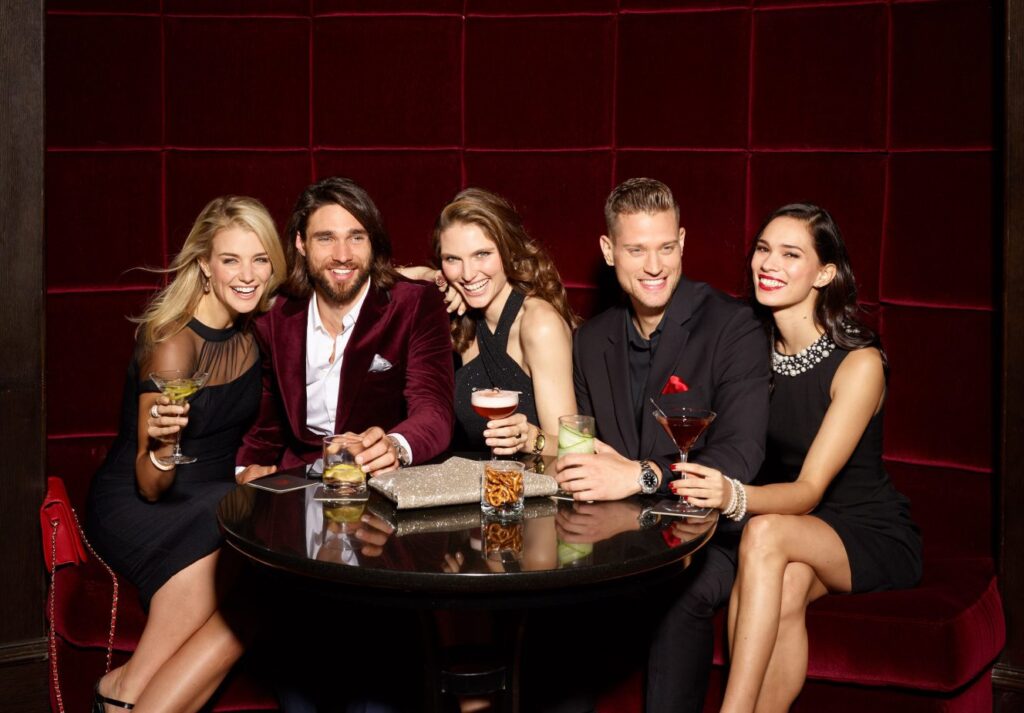
One common and crippling social fantasy that many of us engage in is what I call our “imaginary real friends”. For most of us, our social circle consists of family, classmates, co-workers, and when you get as old as I am, our kids’ friends’ parents. These relationships, often because of our own fears of intimacy, only provide us with a certain level of social satisfaction. We don’t blame ourselves though. Rather, we blame our friends. After all, these people surrounding us are pretty much just average joes we just happened upon in life; whereas, we, captivated by our own immortality project, know ourselves to be so much more.
We accept these relationships for the immediate social sustenance they provide us, but deep down, we know that they are only temporary. In reality, we know that they are just rest stops as we make our way to our “real friends”. These future (or past) real friends are of a much higher caliber than the people who make up our current social circle. They often consist of celebrities, famous politicians, people who we’ve idolized in our past, and other people who really “get” us.
This new group of imaginary real friends will of course materialize at some point because, unlike the average joes who make up our current social circle, we are in no way average. We know that we are actually quite special and once we do whatever magical thing we intend to do in the future that will enable these other special people to see our specialness, they will naturally reach out via email, text, and phone to invite us into their special club, so we can participate in our new secret and all-around spectacular adventures together.
Let me give you Thanatism’s perspective on your current social circle–they are the only people who will ever know you. The fact is, your imaginary real friends don’t exist–not in this world and not in another. If you are particularly young, throughout the rest of your life, you may well equal in new relationships the number of relationships that you’ve already made, but that’s it. Offsetting that will be the loss of the majority of your current relationships that will fall into holiday card and Facebook friends mode. One thing is almost certain–your new friends will likely be the same caliber of people as your existing friends. This is because your new friends, like your old friends, will be human beings.
What is absolutely assured is that your relationships with your new friends will be exactly as fulfilling as your current relationships unless YOU fundamentally change. The fact is, it’s not the caliber of the people who surround us that limits these relationships–it’s us. The people we already know are as capable (god forbid perhaps even more capable) of understanding and relating to us than our imaginary celebrity menagerie. And this is a critical point for authentically relating to the people in our lives today–understanding that they are just as capable and anxious to have deeper and more meaningful relationships as we are.
This is also a good point to meditate briefly on a “death trip”, a practice we’ll discuss further later. Consider the people you have known and who have known you who have faded from your life. They are the only people who will ever know the person you were then. As those relationships fade, so does the you that you once were. That person and those relationships will never come back. Further the people who you already know are almost assuredly the vast majority of the people who will ever know you. To the rest of the world, you simply don’t exist.
Even if you’re a world-historical figure, this is the case. How many people today know Abraham Lincoln? The answer is zero. No one knows that man and no one ever will again. The point being, we, as people, need to stop denigrating our existing relationships with fantasies about our imaginary real friends. We need to focus on the people who surround us today. We need to step down and realize that they are our people and embrace them for who they are. We need to have the humility to accept the shortcomings in those relationships as our own doing and find the courage to open ourselves, so that the brief opportunity we have for authentically relating to each other in this world doesn’t pass us by.
